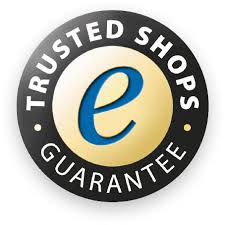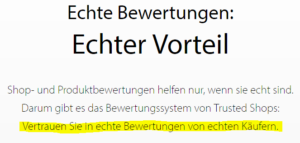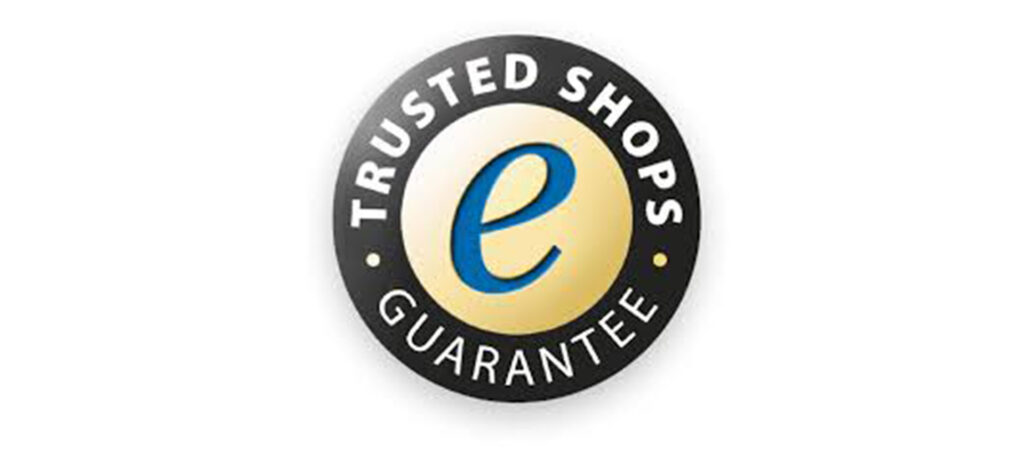
Wer kennt es nicht? Man möchte einen Online-Kauf tätigen und gerät über Preissuchmaschinen an einen Shop, ohne zu wissen ob er seriös ist. Wird die Ware in Ordnung sein? Gibt es Gewährleistungsansprüche? Klappt ein Widerruf?
Hier springt „Trusted Shops“ ein. Ein Dienstleistungsunternehmen aus Köln, dass Händler überprüft und Kunden informiert, ob sie sorglos einkaufen können. So zumindest in der Theorie.
Trusted Shops wirbt wie folgt:
„Unser Gütesiegel steht immer für 100 % Vertrauen und in Verbindung mit dem Käuferschutz auch immer für Sicherheit.“






Nun kann es aber auch anders kommen. So zum Beispiel bei der Verkaufsplattform Beelara.de im Sommer 2017. Beelara.de wurde 2016 gegründet und spezialisierte sich auf leicht höherpreisige Waren wie Smartphones, Notebooks, Gartenmöbel oder Kaffeevollautomaten. Die Firma liess sich als Händler von Trusted Shops überprüfen, bezahlt dem Unternehmen dafür eine stattliche Vergütung (laut Preisliste beträgt die Jahresgebühr zwischen EUR 1.047 – EUR 4.419, zuzüglich etwaiger Zusatzoptionen) und erhält eine Zertifizierung mit Gütesiegel und Käuferschutz. Dies wird wie üblich in prominenter Art und Weise, nämlich gleich an drei Stellen auf der Startseite des Shops angepriesen (ganz oben mittig, ganz unten mittig und am rechten Bildschirmrrand durch ein ständig eingeblendeten „TrustedBadge“).
Die Kernaussage für den durchschnittlichen Betrachter lautet:
„Hier kauft man sicher ein. Alles wurde überprüft. Es bestehen keine Gefahren oder Risiken. Ein Käuferschutz springt für alle Eventualitäten ein.“
www.beelara.de die Betrugsplattform
Die Betreiber von Beelara.de nutzen dieses Garantieversprechen gegenüber potentiellen Käufern auf betrügerische Art und Weise aus: nachdem über mehrere Monate Bestellungen ordnungsgemäß ausgeliefert wurden, offensichtlich um ordentliche Bewertungen zu erhalten, änderte sich dies plötzlich im Juni 2017. Zahlreiche Artikel wurden um bis zu 20 % günstiger angeboten als bei anderen Händlern und in den üblichen Preissuchmaschinen platziert. Als Lieferzeit wurde ein Zeitraum von etwa zwei Wochen angegeben. Es wurde ausschließlich Vorkasse entgegengenommen. Bei Beschwerden wurden die Kunden vertröstet oder sie erhielten sogar EUR 50-Gutscheine.
Mitte Juni 2017 wurde ein gegen die Regularien von Trusted Shops gerichtetes Verhalten von Beelara.de seitens Trusted Shops festgestellt. Daraufhin entschied Trusted Shops, dem Unternehmen Beelara.de die Zertifizierung zu entziehen, was wohl auch geschah. Gleichzeitig entschied Trusted Shops aber auch, das Bewertungssystem und somit auch die prominent platzierten Gütesiegel, eingebunden auf der Verkaufsplattform, zu belassen. Damit wollte Trusted Shops potentiellen Kunden die Möglichkeit geben, sich über die Bewertungen zu informieren und gegebenfalls gewarnt zu werden.
Gegensätzliches passierte: aufgrund der angezeigten Siegel und Logos vertrauten Hunderte, wenn nicht sogar Tausende von Kunden auf die Seriosität der Verkausplattform und bestellten eifrig Waren, die sie auch im Voraus bezahlten.
Trusted Shops unterliess es trotz der positiven Kenntniss über die Unseriosität des Unternehmens die Kunden ordnungsgemäß aufzuklären und zu warnen. Die eingebundenen Siegel und Logos wurden nicht abgeschaltet. Die Logos enthielten auch keine Warnung wie etwa „Achtung, Zertifizierung entzogen“ oder dergleichen. Es wurde suggeriert, alles sei in Ordnung.
Nach bisherigem Kenntnisstand (30. Juli 2017) dürften wohl Tausende von Kunden geprellt, keine Waren erhalten haben und ein Millionenschaden entstanden sein.
Wozu dann Trusted Shops und das Gütesiegel?
Offensichtlich kann auf das Garantieversprechen „ins Blaue hinein“ nicht uneingeschränkt vertraut werden. Aber dann macht ein solches Siegel wohl auch gar keinen Sinn, zumindest nach der Meinung des Verfassers. Denn nur das Vertrauen in das Siegel und damit in einen Verkaufs-Shop lässt die Entscheidung zu, dort uneingeschränkt einzukaufen. Ein Impuls „Trusted Shops-Siegel“ = „Einkaufen“ dürfte sich wohl verbieten, möchte man tatsächlich 100 % sicher gehen.
Der Inhaber der Kanzlei Rehkatsch Rechtsanwälte ist selber Opfer der Betrugsmasche geworden, in dem uneingeschränkt auf das Trusted Shops-Siegel vertraut wurde. Zurzeit wurde Trusted Shops aufgefordert, den entstandenen Schaden (hier: EUR 769,00) im Rahmen des Schadensersatzes zu erstatten. Hierbei wird abgestellt auf eine vorvertragliche Haftung nach § 311 BGB in Verbindung mit § 280 BGB, vor allem auf § 311 Absatz 2 und 3 BGB:
§ 311 Rechtsgeschäftliche und rechtsgeschäftsähnliche Schuldverhältnisse
(1) Zur Begründung eines Schuldverhältnisses durch Rechtsgeschäft sowie zur Änderung des Inhalts eines Schuldverhältnisses ist ein Vertrag zwischen den Beteiligten erforderlich, soweit nicht das Gesetz ein anderes vorschreibt.
(2) Ein Schuldverhältnis mit Pflichten nach § 241 Abs. 2 entsteht auch durch
1. die Aufnahme von Vertragsverhandlungen,
2. die Anbahnung eines Vertrags, bei welcher der eine Teil im Hinblick auf eine etwaige rechtsgeschäftliche Beziehung dem anderen Teil die Möglichkeit zur Einwirkung auf seine Rechte, Rechtsgüter und Interessen gewährt oder ihm diese anvertraut, oder
3. ähnliche geschäftliche Kontakte.
(3) Ein Schuldverhältnis mit Pflichten nach § 241 Abs. 2 kann auch zu Personen entstehen, die nicht selbst Vertragspartei werden sollen. Ein solches Schuldverhältnis entsteht insbesondere, wenn der Dritte in besonderem Maße Vertrauen für sich in Anspruch nimmt und dadurch die Vertragsverhandlungen oder den Vertragsschluss erheblich beeinflusst.
Hier dürfte Trusted Shops in erheblichem Maße Vertrauen für sich in Anspruch genommen und den Vertragsschluss erheblich beeinflusst haben. Im Rahmen dieses vorvertraglichen Verhältnisses hätte Trusted Shops nach Ansicht des Verfassers die Pflicht gehabt, klar und uneingeschränkt zu warnen, wenn nicht sogar die Zertifizierung und Siegel („TrustedBadge“) entziehen müssen.
Sollte Trusted Shops dies anders sehen, beabsichtigt die Kanzlei Rehkatsch Rechtsanwälte die Sache durch ein Gerichtsverfahren klären zu lassen. Auch wird derzeit geprüft, ob eventuell Unterlassungsansprüche, die durch Verbraucher- oder Wettbewerbsverbände geltend gemacht werden könnten, bestehen könnten. In naher Zukunft wird hier weiter darüber berichtet.
Sollten auch Sie durch das Trusted Shops Logo getäuscht worden und dadurch Geschädigter der Verkaufsplattform Beelara.de geworden sein, wären wir Ihnen dankbar, wenn Sie uns als Zeuge zur Verfügung stehen würden. Sollten Sie Ihre Ansprüche ebenfalls verfolgen lassen wollen, stehen wir Ihnen unter info@rehkatsch.de oder unter 0221-4201074 telefonisch zur Verfügung.


